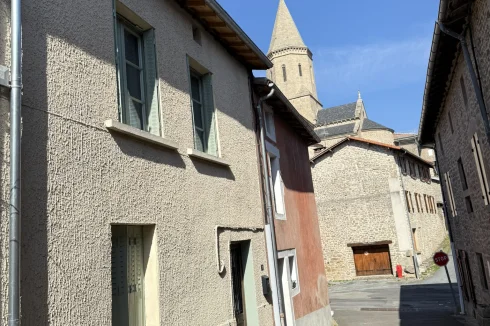Getting a French Mortgage as a Senior
Tuesday 07 November 2017
The mortgage market for 60+ seniors has rarely been a priority for French lenders, but that is slowly changing.
However, with longer life expectancy and higher rates of divorce the sheer size of the market has obliged the banks to respond.
It is a development that has been made easier by the good credit rating of those 60+, who generally have fewer outgoings, a more secure income and a higher level of responsibility about debt.
In the past, the principal difficulty for seniors has been in getting an insurance company to offer them a mortgage protection policy against death or invalidity.
Although such a policy is not a legal obligation in France it is generally imposed by banks as a condition of being granted credit.
However, most insurers have imposed an age limit for underwriting and a maximum age for termination of death insurance, thereby freezing out older borrowers.
To open up the senior citizens' market, specialised insurers have gradually pushed these limits. While, on average, the insurance policies offered by the banks set a maximum underwriting age of 65 years and an end of the death guarantee at 75 years, specialists insurers extend these two limits from ten to fifteen years.
Amongst the insurance companies in the market are MetLife, Mutlog, Swiss Life, April, Alptis, Premium and Generali, some of whom have made this age group's appeal a marketing objective.
Nevertheless, although most older borrowers should be able to find an insurer willing to offer them a policy it often comes at a price, at least 20% to 25% of the cost of the loan itself. So, on a loan with a monthly repayment of €400 a month, the insurance policy itself might add a further €100 a month to the cost of the loan.
The older the applicant the higher the insurance premium, and in a period of exceptionally low mortgage interest rates averaging around 1.7% the premium rate of the insurance policy may not be far behind. As a general rule, expect an insurance rate of between 0.5% and 1.5%, depending on your age.
The level of the premium will also be higher if you present a health risk, irrespective of your age. Although an agreement between the insurers and the government (Aeras - s’assurer et emprunter avec un risque aggravé de santé) provides a protocol for the consideration of applicants with a health risk, it only applies where loan matures before the applicant reaches 70 years of age. That limits its use to those no older than 59 years, who take a loan with a maximum duration of 10 years.
As an alternative to death/invalidity insurance, it is also possible to secure the mortgage against a life insurance policy - assurance vie - if you hold one.
Depending on your circumstances, the nature of the project, and the size of the loan, you may also be able to persuade your bank to simply take a mortgage charge (prêt hypothécaire) on your home. The fees and taxes associated with a charge can, however, often be greater than a mortgage protection insurance policy.
Personal Loan
As an alternative to mortgage finance, for those who merely seek loan finance to fund improvement works to their property, it might be easier and simpler to make application for a personal loan. Those destined for home improvement are called prêts travaux.
The rates of interest on such loans are currently between 3.5% and 5%, up to a maximum loan of €75,000, with a repayment period of up to 15 years.
The loans are generally non-recourse, and offered without the need for a medical questionnaire, although subject to a having a stable income and ratio of debt to income no greater than 33%.
Lifetime Mortgage
A lifetime mortgage is one in which you borrow money against the value of your home, with the mortgage repaid following your death.
In France they are known as a prêt viager hypothécaire.
Although such mortgages are now a well-established product in the UK and many other countries, it is a small market in France, historically due to legal constraints, but also to a lack of interest amongst lenders.
There is only one offer in the market place, which comes from Crédit Foncier, the specialist mortgage arm of the retail bank BPCE (Banque Populaire Caisse d‘Epargne).
The mortgage is offered with a fixed rate of interest of 4.8%, but with additional costs it increases to an effective rate of 6%. It is open to candidates from the age of 60 years.
Strictly speaking, these loans are available to anyone who is legally resident in France, as the bank is barred from discriminating on grounds of nationality. However, we have received numerous e-mails from readers in the past stating that they have been refused such a loan by Crédit Foncier, without explanation.
We have attempted to obtain an explanation from Crédit Foncier as to why the applications have been turned down, but they have been equally unwilling to provide reasons.
One such reason may well be that most of the loans are only granted to those resident in a region with a strong housing market – such as Ile de France or the Côte d'Azur – but there could equally be other reasons.
UPDATE 2018 - Crédit Foncier are to fold up shop, so these loans are no longer available in France. [email protected].
Related Reading:
Thank you for showing an interest in our News section.
Our News section is no longer being published although our catalogue of articles remains in place.
If you found our News useful, please have a look at France Insider, our subscription based News service with in-depth analysis, or our authoritative Guides to France.
If you require advice and assistance with the purchase of French property and moving to France, then take a look at the France Insider Property Clinic.





